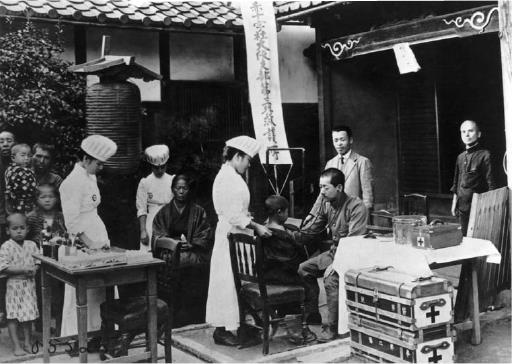Medicine and DiseaseFlorence Nightingale |
Who was Florence Nightingale? |
The English nurse, hospital reformer, and philanthropist is considered the founder of modern nursing. The daughter of well-to-do British parents, Florence Nightingale (1820–1910) was born in Florence, Italy. Though she was raised in privilege on her family’s estate in England, Nightingale had a natural and irrepressible inclination toward caring for others. Despite her parents’ wishes, Nightingale—who, in accordance with the social standards of her set and day had already been presented to the queen—entered a training program for nurses near Dusseldorf, Germany. She went on to study in Paris. In 1853 Nightingale became superintendent of a hospital for invalid women in London.
In 1854 Nightingale took 38 nurses with her to the city of Üsküdar, near Istanbul, Turkey. There, despite great obstacles, she set up a barrack hospital to treat soldiers who were injured in the Crimean War (1853–56), then being fought between Russian forces and the allied armies of Britain, France, the Ottoman Empire (present-day Turkey), and Sardinia (part of present-day Italy). Nightingale set about cleaning the filthy hospital facility; established strict schedules for the staff; and introduced sanitation methods that reduced the spread of infectious diseases such as cholera, typhus, and dysentery. While her methods were considered controversial at first (doctors initially found Nightingale to be demanding and pushy), they got results. Before long, Nightingale was put in charge of all the allied army hospitals in the Crimea.
During the fighting Nightingale visited the front and caught Crimean fever, which threatened her life. By this time she had become so well known that Queen Victoria (1819–1901) was aware of and deeply concerned about Nightingale’s illness. By the end of the war, Nightingale’s care of the sick and wounded was legendary: Known for walking the floor of the hospital at night, tending her patients, she became known as “the Lady with the Lamp.”
After the war Nightingale returned to London and in 1860, with 50,000 pounds sterling, she established a training institution for nurses in London. In 1873 Massachusetts General Hospital in Boston, Bellevue Hospital in New York City, and New Haven Hospital in Connecticut opened the United States’ first nursing schools; all of them were patterned after the London program founded by Nightingale.
Nightingale’s fierce determination, which ran contrary to her parents’ wishes for her as well as to the social standard of the day, made her a legend. And rightly so: Because of her concern for the sick, the standard of care of all patients improved.

